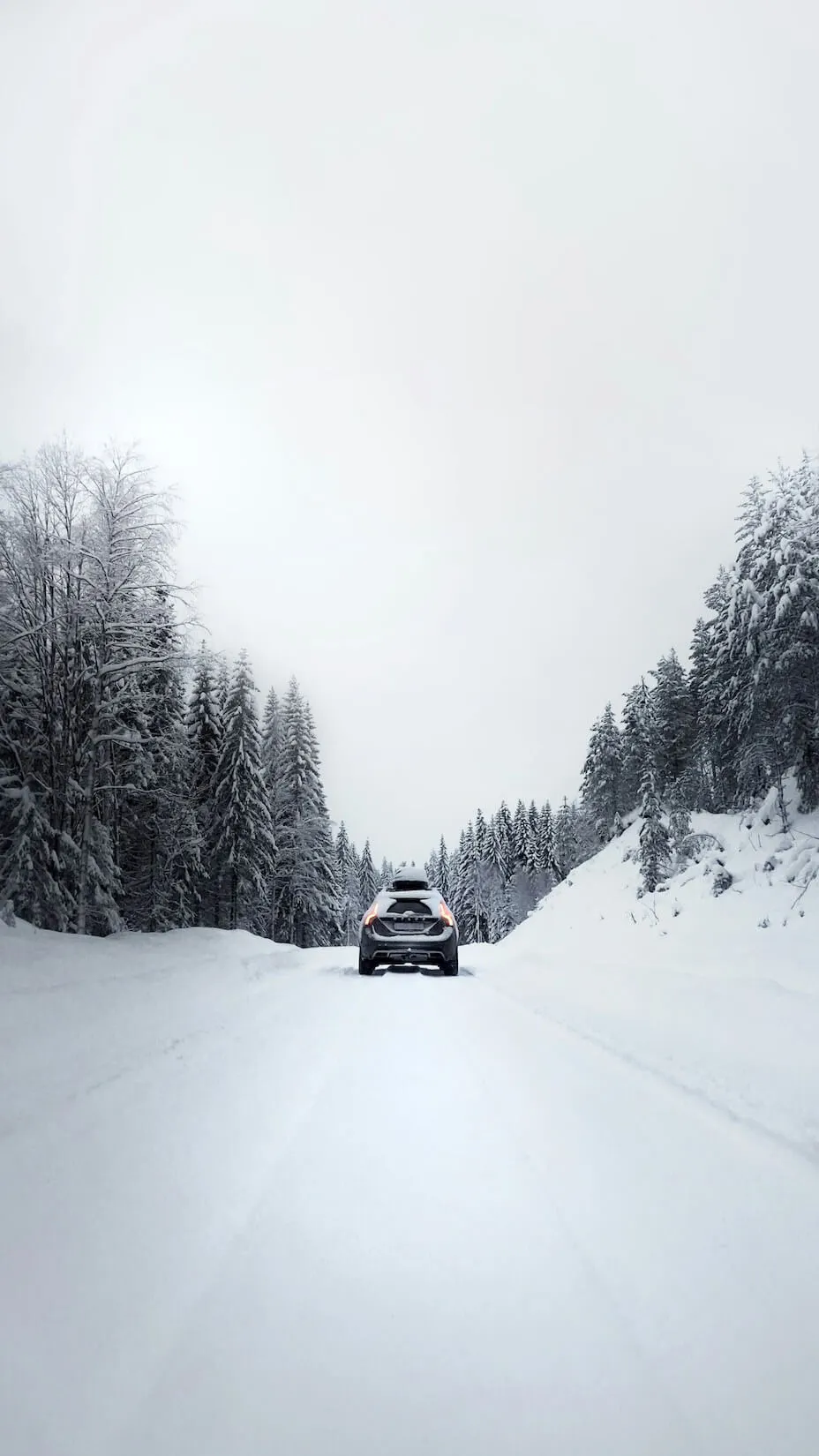Colorado, known for its picturesque landscapes and snowy winters, presents unique challenges for drivers. To ensure safety on the roads, particularly during winter months, the Colorado Traction Law is in place. Understanding and complying with this law is crucial for anyone driving in the state, especially in the mountainous areas.
Table of Contents
What is the Colorado Traction Law?
The Colorado Traction Law, also known as Code 15, is a legal requirement that aims to keep roads safe during inclement weather conditions. It is typically implemented when visibility is low or when roads are snowy or icy. The law requires all passenger vehicles to have either snow tires, tires with a mud and snow designation, or a four-wheel/all-wheel drive. Additionally, tires must have a minimum of 3/16-inch tread depth.
Why is the Traction Law Important?
The primary purpose of the traction law is to minimize traffic accidents and maintain a smooth flow of traffic during adverse weather conditions. Snow and ice significantly reduce tire traction, increasing the risk of accidents. The law ensures that all vehicles on the road are equipped to handle these challenging conditions.
Requirements Under the Traction Law
Snow Tires: Must be designated by the manufacturer as suitable for use in snow.
Mud/Snow Tires (M+S): These tires have a tread and compound designed to perform better in snow.
All-wheel/Four-wheel Drive: Vehicles must have all four tires providing power to ensure better grip.
Tread Depth: Tires must have a minimum tread depth of 3/16 inch. This can be checked with a tread depth gauge or a simple coin test.
Chains or Alternative Traction Devices: In extreme conditions, chains or approved alternatives like auto-socks are required.
Penalties for Non-Compliance
Failure to comply with the Traction Law can lead to fines. If a vehicle without proper equipment blocks the roadway, the driver could be fined more than $130. If the vehicle is involved in an accident or blocks the road, the fine can exceed $650.
When is the Law in Effect?
The Traction Law can be activated at any time during adverse weather conditions, primarily in the winter months. It’s often in effect from September through May, covering the typical snow season in Colorado.
How to Prepare for the Traction Law
Equip Your Vehicle: Ensure your vehicle has the proper tires or chains before the snow season starts.
Regular Checks: Regularly check tire tread depth and overall tire condition.
Stay Informed: Pay attention to local weather forecasts and road condition updates.
Practice Safe Driving: Drive cautiously in snowy and icy conditions, regardless of your vehicle’s capabilities.
Common Misconceptions
All-wheel Drive Suffices: While helpful, all-wheel drive alone doesn’t replace the need for proper winter tires.
Chains are Always Required: Chains are only required under Code 16 (Passenger Vehicle Chain Law), which is a higher level than the Traction Law.
It’s Only for Highways: The law applies to all state, federal, and interstate roads.
Accidents and Fault in Relation to the Colorado Traction Law
Understanding Fault in Winter Accidents
When an accident occurs in Colorado, especially under conditions where the Traction Law is in effect, determining fault can be more complex. Colorado follows a negligence law system, meaning the driver who is found to be more at fault for the accident is responsible for damages. In winter conditions, this can include not adhering to the Traction Law.
Role of the Traction Law in Determining Fault
If you’re involved in an accident and it’s discovered that your vehicle was not in compliance with the Traction Law, you could be deemed at least partially at fault. This is because you’re expected to have your vehicle properly equipped for winter driving conditions.
Insurance companies may consider non-compliance with the Traction Law as a factor in determining fault. This can affect the settlement and how much your insurance will cover.
Legal Implications of Fault
Being at fault in an accident due to non-compliance with the Traction Law can lead to increased financial liability for damages and injuries caused in the accident. Beyond the standard penalties for not complying with the Traction Law, being at fault in an accident can result in higher fines and more severe legal repercussions.
Preventive Measures
Keep records or receipts of tire purchases or services that demonstrate your compliance with the Traction Law. If involved in an accident, report it to the authorities immediately and provide evidence of your compliance with the Traction Law. Collecting evidence and information immediately after an accident can also help your claim.
Navigating Colorado’s Traction Law
The Colorado Traction Law is a critical measure for ensuring safe driving during winter. By understanding and adhering to this law, drivers can contribute to safer roads and less stressful journeys. Always be prepared and stay informed to enjoy the beauty of Colorado’s winter without worry.
In the event of a motor vehicle accident, especially during Colorado’s challenging winter months, having expert legal guidance is crucial. The Paul Wilkinson Law Firm, a premier Colorado-based personal injury law firm, specializes in handling cases related to motor vehicle accidents. With our deep understanding of Colorado’s driving laws, including the Traction Law, we are well-equipped to provide you with the support and representation you need. If you find yourself in a situation where you need legal advice or representation due to a winter driving accident, don’t hesitate to call us today.


